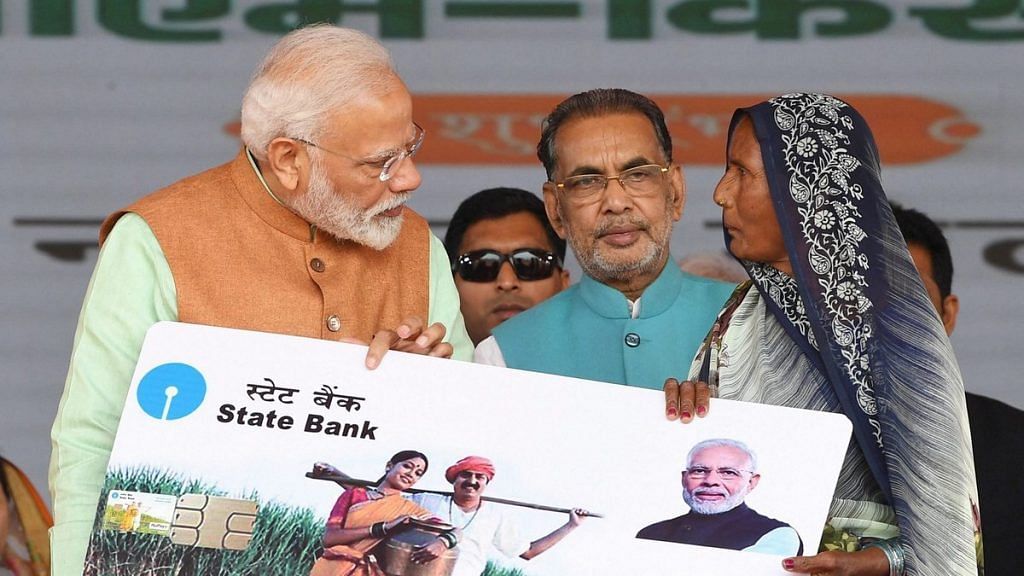New Delhi: The Rs 75,000-crore PM Kisan Samman Nidhi Yojana will have far reaching implications as it has been specifically designed and targeted for small and medium farmers unlike the farm debt waiver programme, said K.V. Subramanian, chief economic adviser to the Modi government.
Last week, Prime Minister Narendra Modi kicked off the scheme in Prayagraj by transferring the first installment of Rs 2,000 each to over 1 crore farmers.
“This scheme is a targeted scheme and, therefore, those farmers who are actually in need will benefit,” Subramanian told ThePrint, pointing out that loan waiver is a bad idea with very little benefit.
The Congress has been batting for farm loan waivers as well as introduction of the Universal Basic Scheme (UBI). The party’s newly-formed state governments in Madhya Pradesh and Chhattisgarh have already announced a loan waiver.
“Loan waiver is, of course, a bad idea. It does not work and we have seen that in the past too,” said Subramanian.
His predecessor, Arvind Subramanian, too had underlined the need for bringing in UBI.
“The Economic Survey talked about it, it talked about the pros and cons of it. As I said, that (UBI) is universal in nature and this (Kisan scheme) is a well-targeted one,” he said.
Also read: India’s growth not leading to jobs, farm loan waivers don’t help poor – Raghuram Rajan
Economic growth
Subramanian, who took charge as CEA in December, noted that low inflation due to monetary policy framework, implementation of the goods and services tax (GST), and the insolvency and bankruptcy code comprise the most critical reform measures for the Indian economy.
He said these reforms, along with governance, will ensure sustained economic growth. He also said that the cost of capital is set to come down.
“Once the cost of capital comes down, lot of projects will become attractive and this should actually lead to animal spirit in the economy,” said Subramanian, adding that appropriate checks and balances have been put in place.
“The foundation has been built in the last five years. The creation of the foundation of a big building does not create as much excitement. It’s only when it starts rising above the ground level that the excitement starts,” said the CEA.
Until 2014, growth rates were high but due to the lack of required checks and balances, there were hindrances, he said.
“Growth rate ran ahead of the institutional checks and balances and, as a result, you had speed-breakers in between, but now with the structural reforms in place, we are set for a sustained growth,” he said.
Subramanian added that one of the major achievements of this government has been how it has maintained a low inflation of about 2 per cent of late.
He said that about 50 per cent of the budget for Indian families goes into food and the lowering of inflation will leave more money in the hands of the middle class.
Also read: Finally, an alternative to farm loan waivers that assures direct income for all farmers
